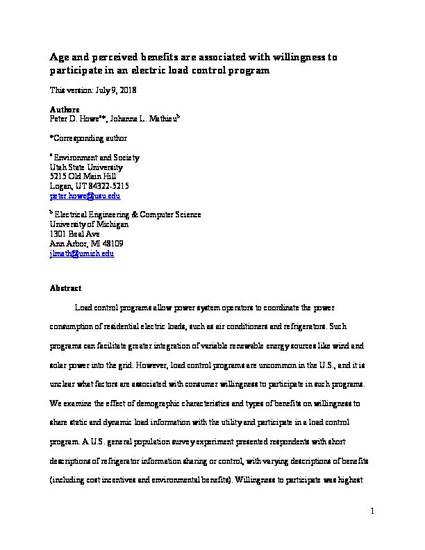
Unpublished Paper
Age and perceived benefits are associated with willingness to participate in an electric load control program
(2018)
Abstract
Load control programs allow power system operators to coordinate the power consumption of residential electric loads, such as air conditioners and refrigerators. Such programs can facilitate greater integration of variable renewable energy sources like wind and solar power into the grid. However, load control programs are uncommon in the U.S., and it is unclear what factors are associated with consumer willingness to participate in such programs. We examine the effect of demographic characteristics and types of benefits on willingness to share static and dynamic load information with the utility and participate in a load control program. A U.S. general population survey experiment presented respondents with short descriptions of refrigerator information sharing or control, with varying descriptions of benefits (including cost incentives and environmental benefits). Willingness to participate was highest when environmental benefits were described and among younger respondents, with respondent age having the largest effect. Respondents were more willing to share static than dynamic load information. Willingness to share dynamic information and participate in load control were comparable. These results suggest that targeted communication strategies that leverage consumer preferences for environmental benefits along with individual demographic characteristics may be most effective in eliciting adoption of load control programs.
Disciplines
Publication Date
2018
Citation Information
Peter D Howe. "Age and perceived benefits are associated with willingness to participate in an electric load control program" (2018) Available at: http://works.bepress.com/peter_howe/76/
